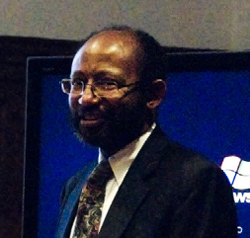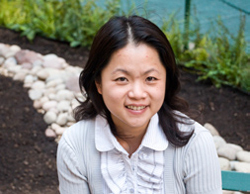Spotlight on New Faculty
Inside introduces Hsu-Min Chiang, Assistant Professor of Special Education; and Samuel Lucas, Julius and Rosa Sachs Lecturer.
Over the course of each year, Inside profiles the College’s annual new cohort of faculty members and post-doctoral fellows. In this issue, we are pleased to introduce Hsu-Min Chiang, Assistant Professor of Special Education; and Samuel Lucas, Julius and Rosa Sachs Lecturer.
Hsu-Min Chiang
Assistant Professor of Special Education
What do you teach?
This past semester, I taught instruction and curriculum for students with and without disabilities. In the spring, I’ll be teaching Intro to Special Education and Curriculum and Instruction for Students with and without Disabilities.
What has been the focus of your research?
My research has focused on communication skills, behavior problems, cultural differences, behavioral interventions and academic achievement in individuals with autism spectrum disorders, as well as transition support services for these individuals.
I have investigated the expressive communication of Australian and Taiwanese children with autism who have limited spoken language. I found that every child with autism does communicate, even if he or she never acquires speech or has limited spoken language. Also, I found that cultural differences do exist in the expressive communication of children with autism. For example, the Australian children were more likely to display challenging than the Taiwanese children.
I also have investigated the mathematical ability of students with Asperger syndrome and high-functioning autism. I have found that some of these individuals have mathematical giftedness.
What are your academic passions?
I enjoy working with individuals with disabilities and their families, and I am interested in doing research that will promote the quality of life of people with disabilities and their families.
Who has been influential in the development of your interests and/or career?
My greatest influences have been the individuals with disabilities I had as students when I was a special education teacher, as well as those who participated in my research, along with their families.
Samuel Lucas
Teachers College’s 2010–2011
Julius and Rosa Sachs Lecturer
“Discrimination is the act of individuals,” says Samuel Lucas. “But it’s also the set of norms, values and support mechanisms that get constructed by that interaction. And those support mechanisms outlive the people and the acts that create them, and then they take on a life of their own.”
Lucas is Professor of Sociology at the University of California-Berkeley. In books such as Theorizing Discrimination in an Era of Contested Prejudice (Temple University Press, 2008), he has sought to define discrimination by showing how it plays out for all members of society—something he believes that standard methods for measuring the effects of discrimination cannot do.
“Our empirical research on discrimination has set it up as a zero-sum phenomenon, so you figure out whether discrimination has occurred by comparing the outcomes of one group to the outcomes of another group,” Lucas says. “By that logic, you’d never be able to find out if the non-target group is losing, because they will always come out looking better off.”
For example, he says, if Latinos are not allowed to rent apartments in a particular neighborhood, “it would look like Latinos are losing and non-Latinos are gaining. But that’s not necessarily the case.” In fact such a scenario discourages investors from building apartment buildings, because their tenant base is limited. “It creates inefficiency. You may lower the housing stock, such that everyone ends up paying more. If you got rid of discrimination, you’d get rid of inefficiency. Rents would stabilize or even go down a little bit.”
Sometimes, it’s hard to tell whether someone is the target of discrimination or, instead, a non-target who has nonetheless been damaged by the fallout. For example, when teachers assume girls are better-behaved or more mature than their male classmates, either “that’s really discrimination against girls and there’s fallout for boys,” or “that’s a limiting view of boys and therefore discrimination against boys.”
Without careful study, “I’m not able to conclude which of those two might be operating,” Lucas explains. “But I can say that either way the best resolution is to get rid of this dynamic of discrimination.”
Published Monday, Dec. 20, 2010

